Menti-meter notes
1/19
There's no tags or description
Looks like no tags are added yet.
Name | Mastery | Learn | Test | Matching | Spaced |
|---|
No study sessions yet.
20 Terms
In traditional Chinese architecture, the courtyard house (Siheyuan) is a prominent residential design. Which of the following are key characteristics
Features a central open courtyard surrounded by buildings on all four sides
In traditional Chinese architecture, Dougong is an important structural and decorative element. Which of the following statements about Dougong a
Dougong consists of interlocking wooden brackets that help distribute weight and provide structural stability
The Lingering Garden in Suzhou is one of China’s most famous classical gardens. Which of the following are key characteristics of the Lingering Garden
Carefully arranged rockeries and artificial hills,
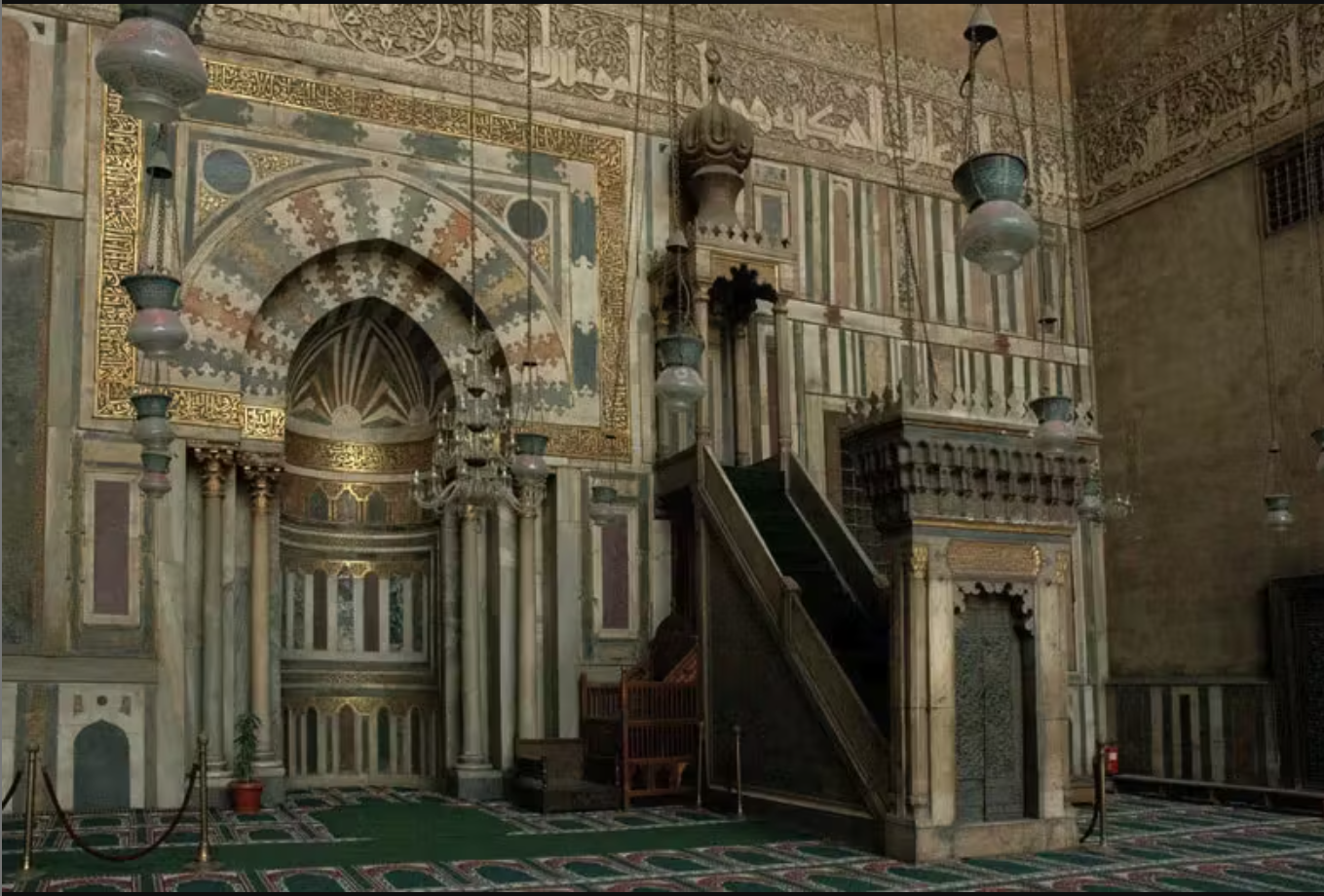
In Islamic architecture, the qibla is:
It indicates the direction Muslims face during prayer
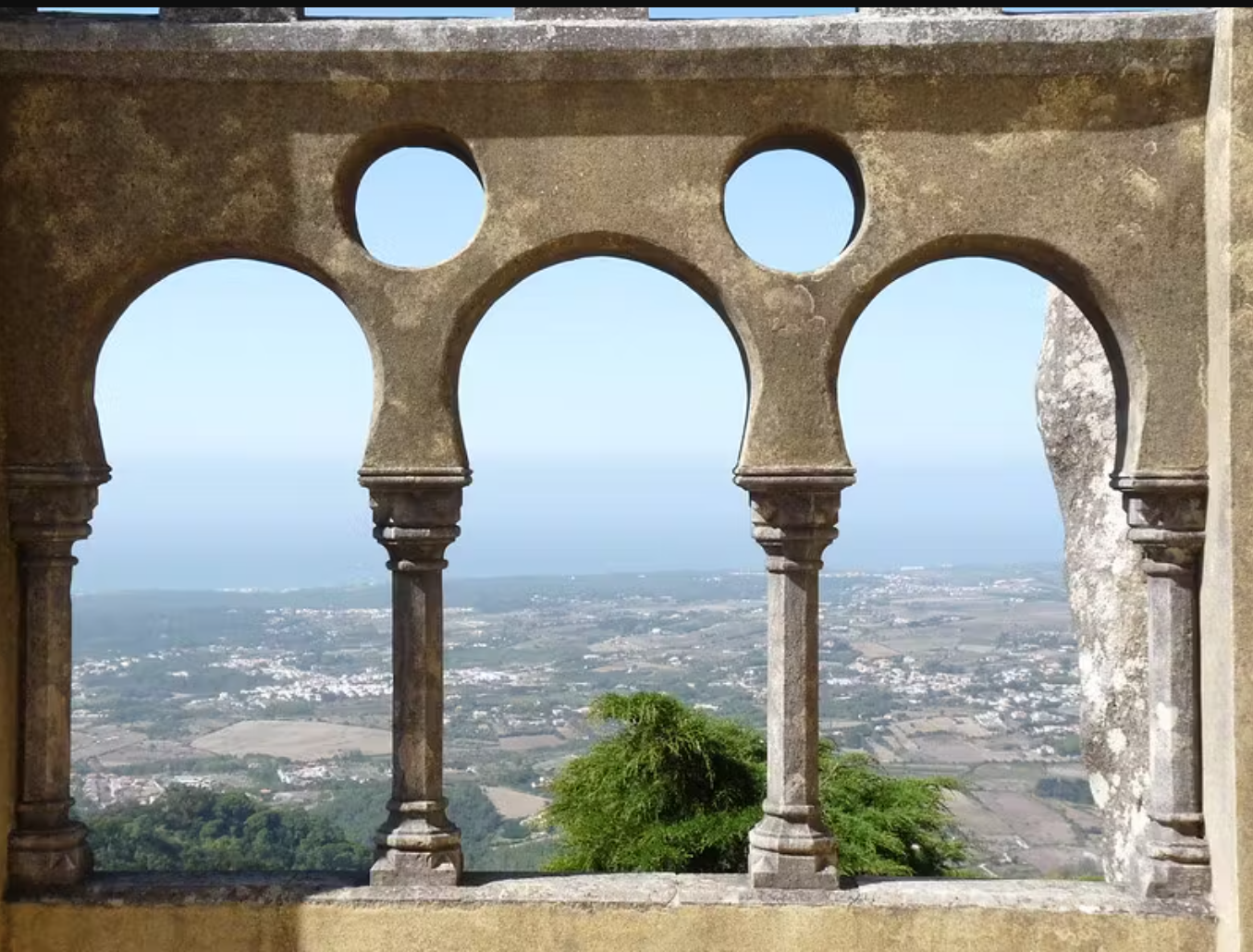
What is this type of arch called?
horseshoe arch
Which of the following statements about muqarnas are incorrect?
(Everything listed BUT “no structural function” )
decorative vaulting used to transition between architectural elements.
Muqarnas is commonly found in domes, arches, and corbels.
The design is based on interlocking geometric and honeycomb-like patterns.
What does the root word of "cathedral" ?
cathedra
Which of the following architectural modifications were NOT introduced by Abbot Suger during the renovation of Saint Denis Cathedral?
The replacement of stained glass windows with solid stone walls
Which of the following statements correctly describe the column form used in Gothic architecture?
Slender and clustered, appearing as a group of small shafts bundled together
What was the primary purpose of the family towers commonly built in medieval Italian cities such as Siena and Bologna?
To display family wealth and power among rival noble families
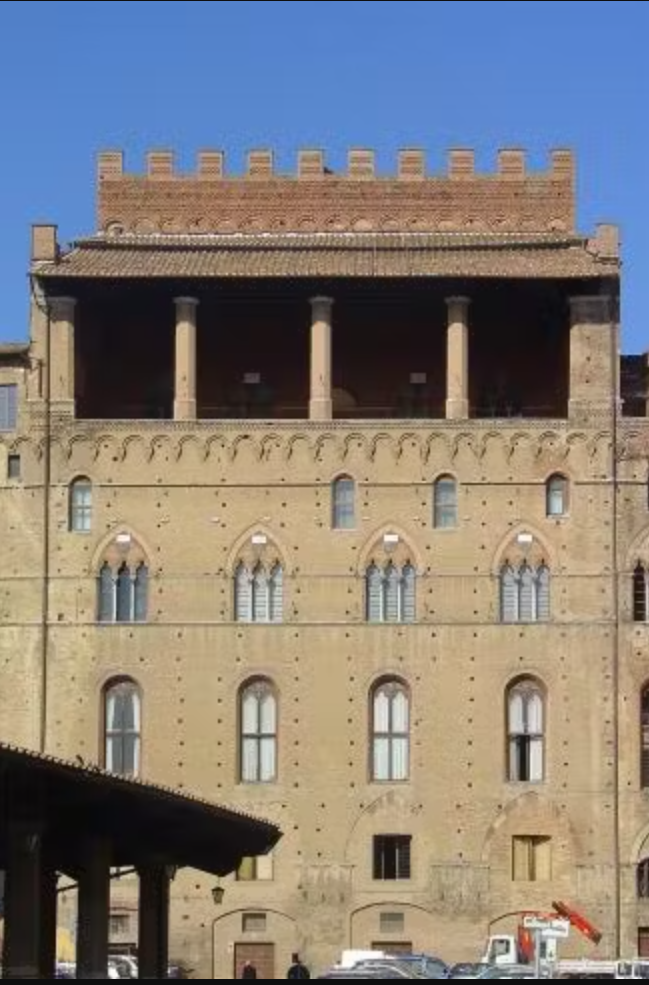
What is a covered gallery or room with one or more open sides in Medieval and Renaissance eras?
Loggia
How were the foundations of buildings traditionally constructed in the city of Venice?
By driving wooden piles into the muddy lagoon floor, which solidified over time
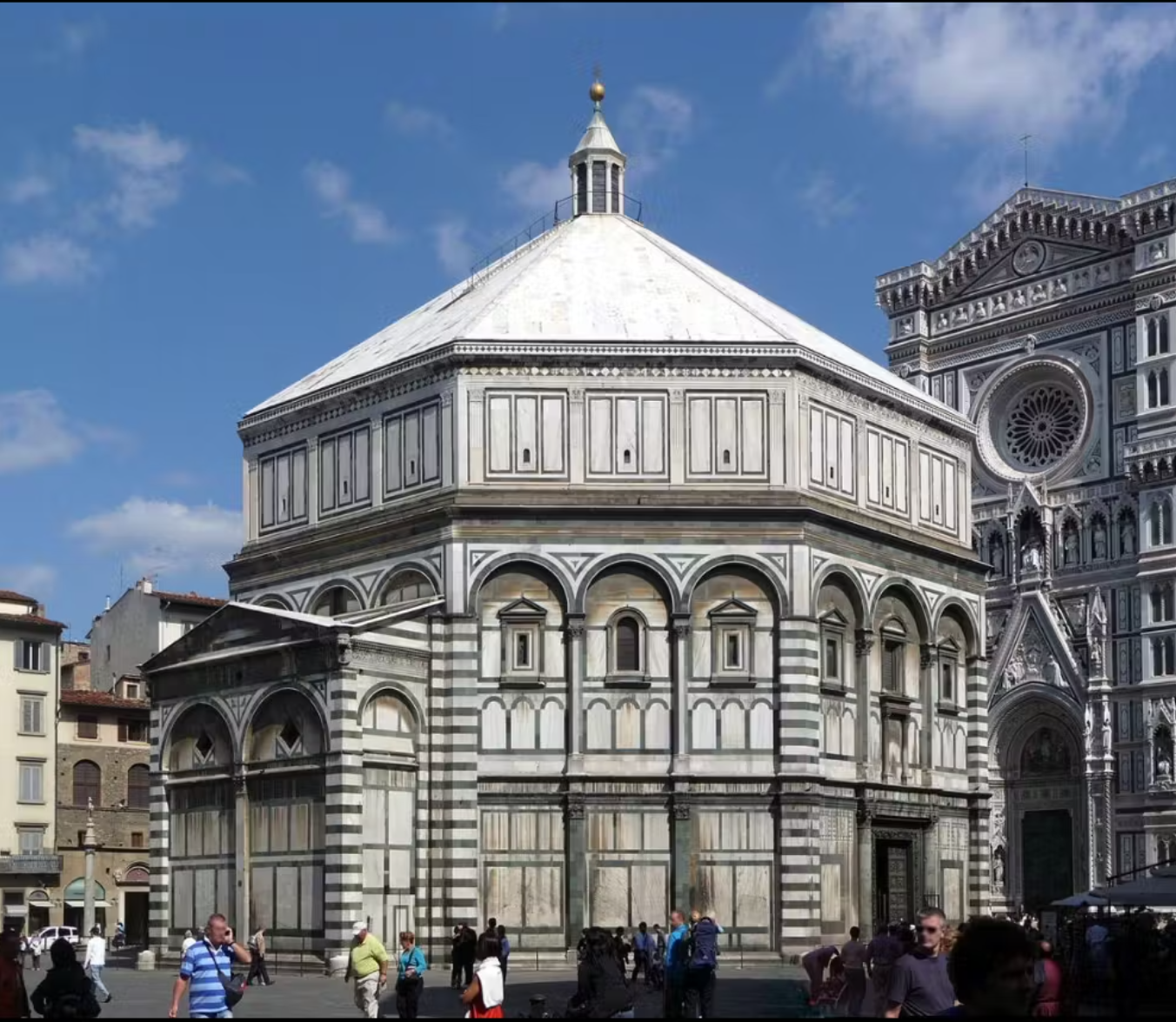
In the late 14th century, what time period did Florentines believed that this building was built in?
Roman (NOT ROMANESQUE)
What are the main structural innovations of Brunelleschi's dome for the Duomo in Florence?
double dome
herringbone pattern brick
metal chain at the bottom
cupola on the top
(All of the above)
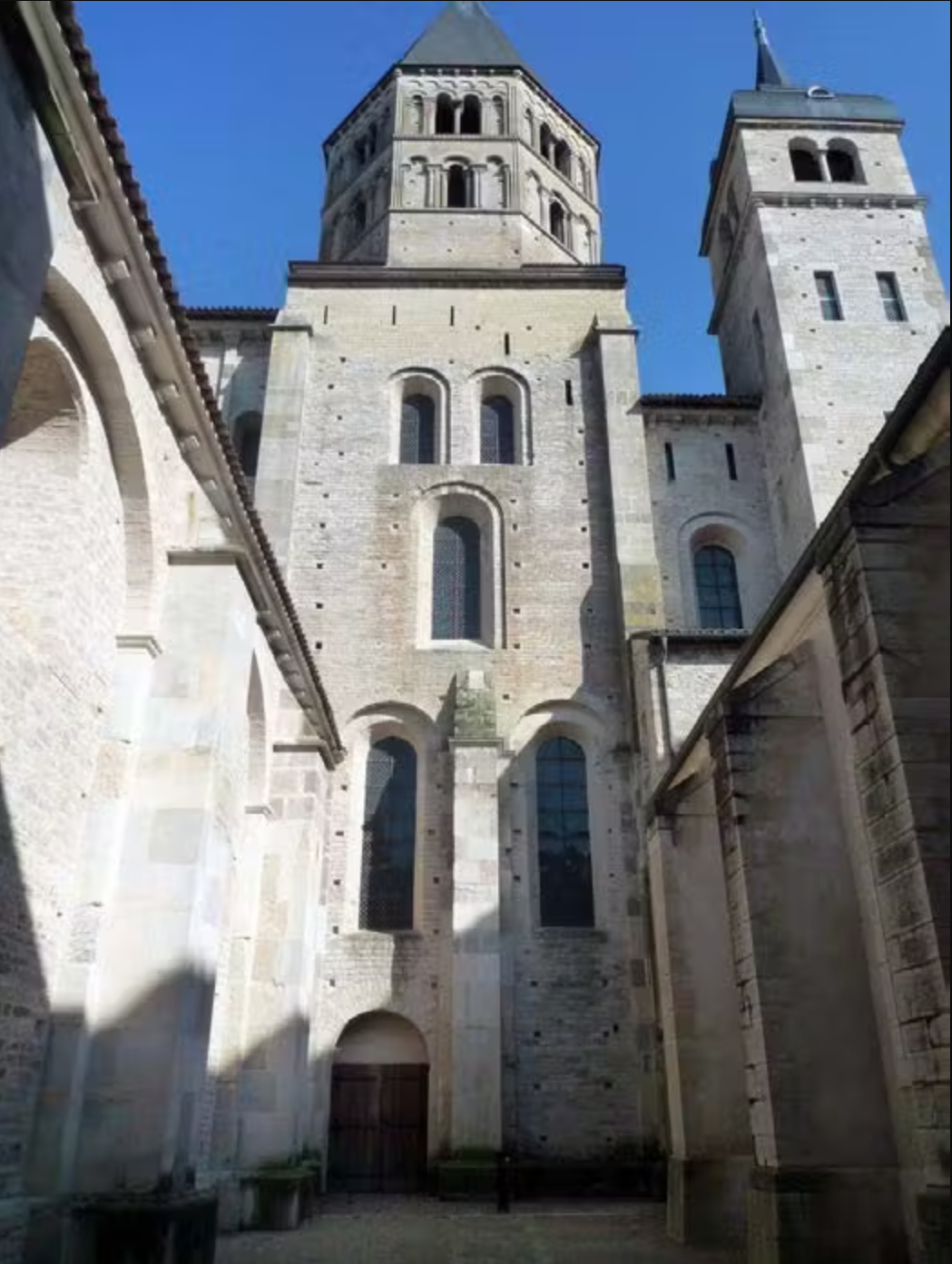
ID this building/complex
Culny Abbey
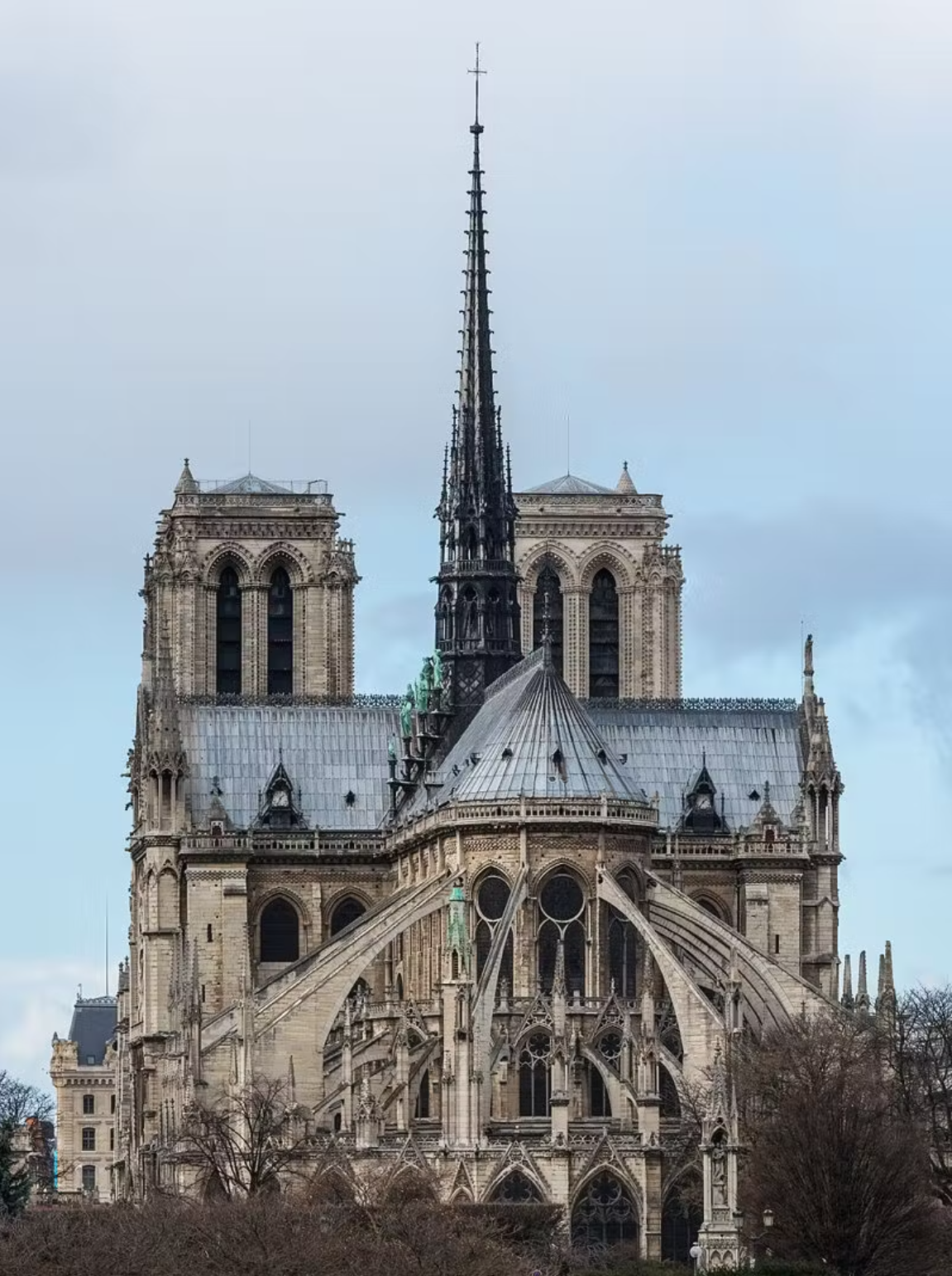
ID this building
Notre Dame, paris
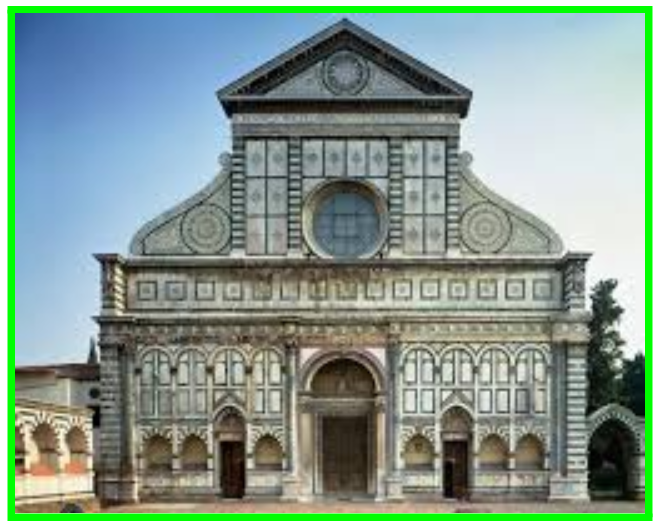
ID this building
Santa maria novella, florence
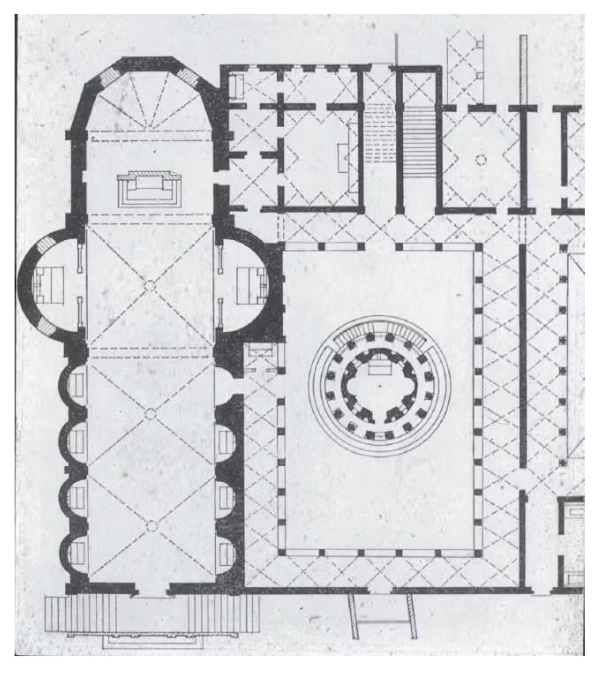
ID this building (floor plan)
San Pietro in Montorio (st. Peters)
(It is comprised of all roman and greek architecture)
The study of HT is not just about what buildings and interiors look like but, more importantly, about what they "do." any examples?
(This is bits and pieces I got from what ding was “answering” to this question)
The tall towers also being used as defense
Symbolism (showcasing power and wealth)
The florence cathedral is the building in florence that dominants the other buildings around it.
The tombs (large boulders in the beginning of the year, they also created to commemorate their ancestors and worked as a gathering to dances/festivities)
The reciprocal relationship between buildings/interiors/urban and various contexts, including intellectual, religious, economical, technological?
(This is ALSO bits and pieces I got from what ding was “answering” to this question)
Every building serves as this?
Town hall from sienna this new governing system or how they organize the city
Ranking of the society (demonstrated in urban context)
Everything we talked about this semester relates to this, (have to look at the bigger picture?)